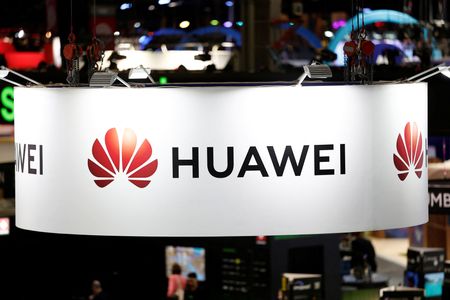By Daniel Leussink
TOKYO (Reuters) – Tokyo’s auto show is back for the first time in four years and newly rebranded for the electric vehicle era, in a marketing overhaul that may be more reflective of industry aspirations than Japanese automakers’ lagging battery-powered lineup.
The Japan Mobility Show, which opens on Thursday, comes at a critical moment for the domestic industry.
Toyota, the world’s top-selling automaker, this year announced a strategic pivot to battery EVs, including plans to commercialise advanced batteries and adopt die-casting technology pioneered by Tesla.
Toyota’s shift has helped silence criticism that it was too slow to embrace battery EVs.
But the outlook is gloomier for some of its smaller rivals like Subaru, Mazda and Mitsubishi Motors that may face a more daunting challenge in rolling out EVs, analysts say.
Meanwhile, China’s top automaker BYD will be the first Chinese car maker to exhibit models at the show, and one of just three foreign auto manufacturers to do so, along with German brands Mercedes and BMW.
And unlike many of the Japanese companies, who will be displaying concept cars, the foreign automakers will all show battery EVs that are already in production or are going to be in production.
There seems to be a “growing gap” between Japan’s stronger automakers, such as Toyota and Honda that are producing record profits, and weaker players, said Koji Endo, head of equity research at SBI Securities.
Japan’s auto industry is also facing pressure from high input costs and slumping sales in China, where Japanese brands such as Nissan and Mitsubishi, which reportedly has decided to end production there, have been hit harder than other non-Chinese makers.
Toyota will display various battery-powered concept models at the show, including a sport utility vehicle, mid-size pickup truck and a sports car.
The world’s biggest automaker by sales has long advocated for a multi-pronged approach to reduce carbon emissions that includes other electrified and alternative energy options besides battery EVs.
The company will show new models of its Century and Crown series, which it has previously unveiled as plug-in hybrid and hybrid vehicles.
Nissan plans to display the battery-powered Ariya, Leaf and Sakura models, in addition to new battery EV concept models such as a luxury minivan.
SHRINKING HOME MARKET
The biennial show was not held in 2021 because of the pandemic.
This year, it will feature a range of mobility technologies including autonomous vehicles, motorbikes, trucks and so-called “flying cars”.
Yet despite the bid to appeal to a wider audience, Japanese automakers are grappling with growing pressure from a rapidly ageing and declining population that has fewer young people to buy cars, pressuring auto sales.
New registrations for passenger cars last year hit their lowest annual level on record, according to data from the Japan Automobile Manufacturers Association that goes back to 1993.
Registrations declined 6.2% in 2022 from the previous year to 3.4 million vehicles.
Nearly a third of Japan’s population of 124 million was aged 65 or older as of May 1, according to government data.
Last year was the third consecutive year that new car sales stayed below 4 million, though they were also hit by fallout from a post-pandemic chip shortage that disrupted auto production and supply.
In contrast to the darkening outlook in Japan, data from the ASEAN Automotive Federation shows that the auto market in Southeast Asia has been growing.
Passenger vehicle sales in seven Southeast Asian countries jumped 24% year-on-year to 2.2 million in 2022, the data showed, though Japanese automakers are battling against Chinese EV upstarts to maintain share in key markets like Thailand.
(Reporting by Daniel Leussink; Editing by David Dolan and Jamie Freed)











